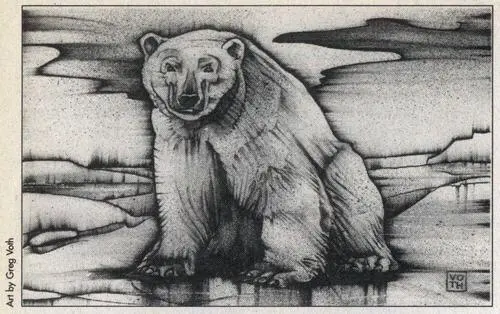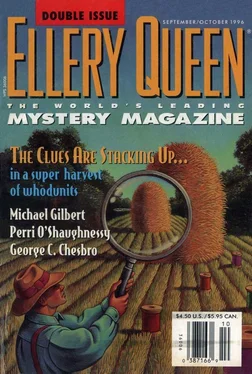Doug Allyn - v108 n03-04_1996-09-10
Здесь есть возможность читать онлайн «Doug Allyn - v108 n03-04_1996-09-10» весь текст электронной книги совершенно бесплатно (целиком полную версию без сокращений). В некоторых случаях можно слушать аудио, скачать через торрент в формате fb2 и присутствует краткое содержание. Город: Dell Magazines, Год выпуска: 1996, Издательство: Dell Magazines, Жанр: Детектив, на английском языке. Описание произведения, (предисловие) а так же отзывы посетителей доступны на портале библиотеки ЛибКат.
- Название:v108 n03-04_1996-09-10
- Автор:
- Издательство:Dell Magazines
- Жанр:
- Год:1996
- Город:Dell Magazines
- ISBN:нет данных
- Рейтинг книги:4 / 5. Голосов: 1
-
Избранное:Добавить в избранное
- Отзывы:
-
Ваша оценка:
- 80
- 1
- 2
- 3
- 4
- 5
v108 n03-04_1996-09-10: краткое содержание, описание и аннотация
Предлагаем к чтению аннотацию, описание, краткое содержание или предисловие (зависит от того, что написал сам автор книги «v108 n03-04_1996-09-10»). Если вы не нашли необходимую информацию о книге — напишите в комментариях, мы постараемся отыскать её.
v108 n03-04_1996-09-10 — читать онлайн бесплатно полную книгу (весь текст) целиком
Ниже представлен текст книги, разбитый по страницам. Система сохранения места последней прочитанной страницы, позволяет с удобством читать онлайн бесплатно книгу «v108 n03-04_1996-09-10», без необходимости каждый раз заново искать на чём Вы остановились. Поставьте закладку, и сможете в любой момент перейти на страницу, на которой закончили чтение.
Интервал:
Закладка:
“Especially if that nut case D’Amato wises up and pleads innocent,” Bill said. “Him and his magic knife...”
I shook my head. “I still think it’ll bother him that somebody else got Tommy Slick after all...”
“Who cares?” Fred was smiling at Isaac. “The important thing was you! That was really something, Isaac.”
The old man gave a quick nod. “My friends’ll tell you, modesty’s not my strong suit. But it’s nice to know I can still rub two thoughts together.”
“Are you kidding?” Bill raised his drink. “I say a toast is in order... I think we’ve found a new member of the Smart Guys Marching Society.”
“That’s a great idea,” I said.
“Works for me,” Fred chimed in. He tossed a beer to Mark, standing at the wall phone. “Raise one with us, Mark. We’re initiating Isaac into the Smart Guys.”
Mark toasted him. “Sorry about that, Isaac.” Then, turning to the phone, he said, “Vince?... You got a minute? You’re not gonna believe this, but...”
The Woman Who Loved Polar Bears
by Suzanne Jones
© 1996 by Suzanne Jones
When she is not turning out fiction, Suzanne Jones writes freelance for a medical firm in Colorado. Colorado settings frequently appear in her stories, especially the University of Colorado at Boulder, where the author herself was once a student.

At first Hal had to use oxygen only at night. Sarah moved to her daughter’s old room so as not to disturb him, since he had difficulty sleeping. One night as she stayed up, too restless herself to sleep, she chanced to see part of a movie on the disastrous Nobile expedition to the Arctic. She had been fascinated by the story of the Italian airship that had crashed on its overfly of the North Pole and by the sacrifice of the great explorer Amundsen in his search for the wreck of the dirigible. Of white spaces so vast they pushed at the corners of her mind. But the image that remained with her was that of the polar bear, the solitary hunter, roaming over a landscape like nowhere else on earth, as remote from her patch in Boulder as if it were on the moon.
Now Hal trailed his oxygen tube throughout the house like a tendril of himself, slowly dragging it through every room. Sarah thought of it as a horrid kind of umbilical, this hose which supplied his laboring lungs. She found it lying everywhere like the golden track of a great snail, marking his passing by shiny lengths of itself on rug and up stair, disappearing beneath the closed door of the bathroom or the bedroom when he went down for his nap. She had an aversion to stepping on it, as if she could collapse it with her weight and cut off his very breath, though she knew very well that she could not. It was more a squeamishness which caused her to avoid it, as she would avoid earthworms on the walk after a heavy rain, rather than some concern for trampling a defenseless part of him.
Then one day, he simply stopped. Stopped moving with his painful tread. Stopped breathing. Stopped.
There was no very good reason for him to continue, though she had been warned that he might go on as he was for years. “Congestive heart failure due to complications from emphysema” is what his physician told her, his great gray eyes swimming sympathetically, like the yolks of petrified eggs on eyeballs of fishy white. He too will be dead soon, she thought.
There was no immediate sense of release. She went outside and sat on the front steps. Before her Campbell’s Cliffs, darkly wet from the last snow, lay against the slope of Flagstaff and looked much the same as they usually did at that time of year, though the snow, coming in late October, had been early. The mountain still wore its autumn reds and yellows. The cold air stung her eyes and made them water, simulating grief.
The ambulance came and went. The day girl came and tidied away and made up his bed. His pillows were as crisply white as an arctic landscape, the sheets as desolate as the sweep of arctic plain.
The doctor left her some capsules to help her sleep.
Then she was alone. Truly alone. Someone had thoughtfully collected the three green interconnected oxygen tanks which had stood side by side in the downstairs hall. There were only the circular indentations in the rug in the hall to remind her. She supposed in time they would disappear.
There was an odd, uneasy silence in the house. She didn’t miss the sound of the oxygen because it had made little sound really, no more than a gust of wind. It had never hissed except when she had, in the beginning, filled the portable tank for him when he wanted to go out of the house. But it had been months since he had wanted to do so.
From time to time throughout that first evening she imagined she heard a scuttling, a rustle in the dark, or would glimpse a movement out of the corner of her eye. Then nothing. Nothing when she put on the lights, all the lights, and went slowly through the house. The undraped windows of the dining room shone as black and hard as obsidian, mirroring her solitary image, satisfying her that she was truly alone. Except for the smell of him, which lingered, clinging to rug and walls and bed most strongly in his room, but layering the air throughout the house with the oppressive sweetness of illness. She blamed the sounds on the resurgence of a memory of some long-forgotten pet, the clicking of a dog’s nails across the kitchen tiles, then muffled in the carpet. Something like that.
She had looked down at the narrow shape of him beneath the sheets as they wheeled him across the porch and lifted the gurney down the steps. He had become a ridge of snow drifted against stainless-steel tubes. As pale and remote already as the memory of spring.
She avoided looking in mirrors for the rest of that day and night as she made the obligatory telephone calls: to her daughter in Colorado Springs, to Hal’s cousins, to the English Department, to two or three of their friends.
She did not remember much of the funeral or the colleagues who eulogized him as a scholar, an educator, generous with his knowledge and his time. Thoughtful of his students. Widely respected and admired.
His colleagues and friends and the elderly cousins had filled the funeral home in which he lay in Brooks Brothers splendor prior to cremation, his nostrils pinched but free at last of that damned tube.
She did not recognize many of the people there. It had been five years since Hal had retired. His colleagues were mostly younger than he was, and one by one had disappeared from Hal’s life. Now it had been too long for her to remember them with confidence. She would recognize their names as they whispered them to her and took her hand, but she identified them tentatively, as she might music heard faintly from another room. There were, of course, couples whom she and her husband had seen up until fairly recently, who had pretended to ignore the tubing and the outer trappings of his illness, but she was not close to any of them. They were really his friends — their friends.
Her daughter Catherine, smooth-faced and assured, had come from Colorado Springs. Her husband was away on business and could not attend the funeral. Catherine insisted that she spend the night with her mother. Though Sarah agreed, she wished that her daughter would mourn by herself, if she had a mind to. She had seen the tears at the funeral and had been angered by them. If Catherine had felt like that about Hal, where had she been all these months? An intermittent presence. A disembodied voice on the telephone. Yet she knew she was being unfair. Her daughter had her own life. She supposed the younger woman was genuinely sorry her stepfather was dead, but Sarah suspected she mourned for what she had lost long ago rather than the yellowed husk Hal had become. But that was all right, wasn’t it? What should she mourn for?
Читать дальшеИнтервал:
Закладка:
Похожие книги на «v108 n03-04_1996-09-10»
Представляем Вашему вниманию похожие книги на «v108 n03-04_1996-09-10» списком для выбора. Мы отобрали схожую по названию и смыслу литературу в надежде предоставить читателям больше вариантов отыскать новые, интересные, ещё непрочитанные произведения.
Обсуждение, отзывы о книге «v108 n03-04_1996-09-10» и просто собственные мнения читателей. Оставьте ваши комментарии, напишите, что Вы думаете о произведении, его смысле или главных героях. Укажите что конкретно понравилось, а что нет, и почему Вы так считаете.












